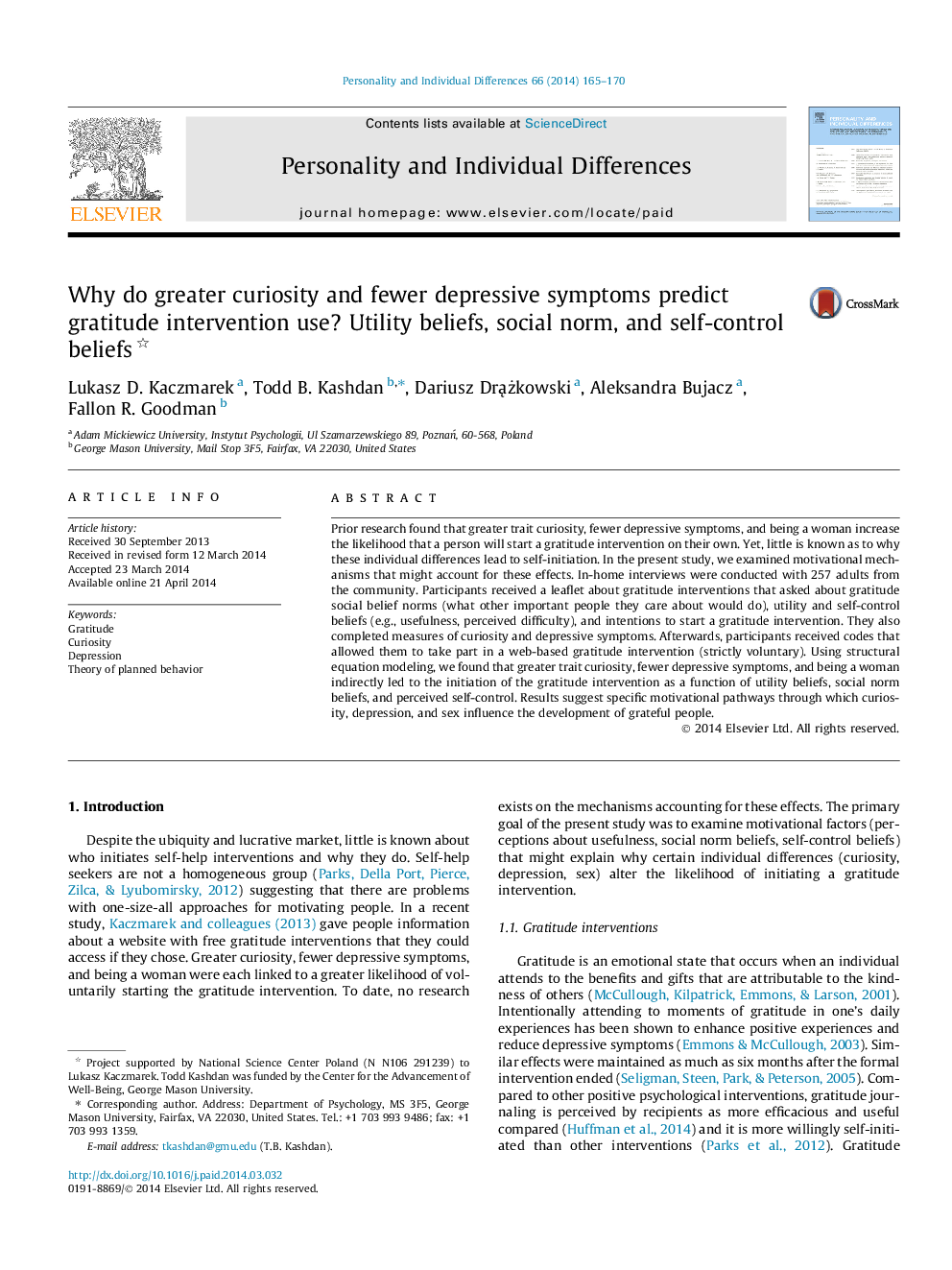| Article ID | Journal | Published Year | Pages | File Type |
|---|---|---|---|---|
| 890491 | Personality and Individual Differences | 2014 | 6 Pages |
•Explored what leads to self-initiated gratitude interventions.•Greater dispositional curiosity and less depression increased self-initiation.•Beliefs from the theory of planned behavior mediated dispositional influences.•Women were more likely than men to initiate and complete the intervention.
Prior research found that greater trait curiosity, fewer depressive symptoms, and being a woman increase the likelihood that a person will start a gratitude intervention on their own. Yet, little is known as to why these individual differences lead to self-initiation. In the present study, we examined motivational mechanisms that might account for these effects. In-home interviews were conducted with 257 adults from the community. Participants received a leaflet about gratitude interventions that asked about gratitude social belief norms (what other important people they care about would do), utility and self-control beliefs (e.g., usefulness, perceived difficulty), and intentions to start a gratitude intervention. They also completed measures of curiosity and depressive symptoms. Afterwards, participants received codes that allowed them to take part in a web-based gratitude intervention (strictly voluntary). Using structural equation modeling, we found that greater trait curiosity, fewer depressive symptoms, and being a woman indirectly led to the initiation of the gratitude intervention as a function of utility beliefs, social norm beliefs, and perceived self-control. Results suggest specific motivational pathways through which curiosity, depression, and sex influence the development of grateful people.
